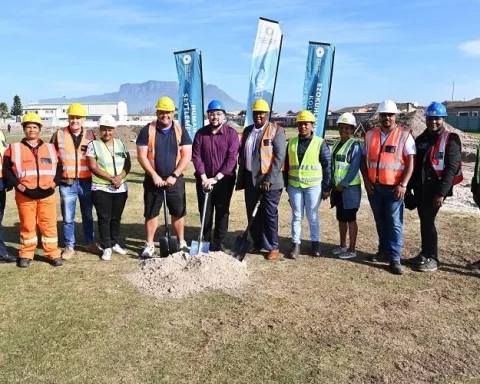South Africa’s Select Committee on Education and Technology, Sports, Arts, and Culture has extended the submission deadline for the Basic Education Laws Amendment (BELA) Bill to 31st January 2024 to ensure inclusivity and comprehensive evaluation of all presented perspectives. The BELA Bill aims to fill the gaps left by previous laws in the education sector, making it more inclusive and efficient. The proposed changes reach further into the broader school setting, suggesting enhancements to school governance, potential for school amalgamations, and synchronization of home schooling with public schooling.
The Extended Deadline and Its Implication
South Africa’s Select Committee on Education and Technology, Sports, Arts, and Culture has extended the deadline for submission of written observations on the Basic Education Laws Amendment (BELA) Bill to 31st January 2024. The decision was made to ensure inclusivity and comprehensive evaluation of all presented perspectives. The BELA Bill aims to fill the gaps left by previous laws in the education sector, making it more inclusive and efficient.
The Extended Deadline and Its Implication
In an interesting turn of events, South Africa’s Select Committee on Education and Technology, Sports, Arts, and Culture has decided to extend the deadline for the submission of written observations on an important legislative document, the Basic Education Laws Amendment (BELA) Bill. The adjusted deadline for these entries has been rescheduled to 31st January 2024.
The chairperson of the committee, Mr. Elleck Nchabeleng, expressed that the decision to prolong the deadline was catalyzed by the desire to ensure inclusivity and comprehensive evaluation of all presented perspectives. According to Mr. Nchabeleng, the importance of the Parliament’s openness to the people’s voice cannot be overemphasized. This concept is crucial because the foundation of a democratic system rests on the active participation of citizens in the legislative process.
Certain stakeholders had voiced the need for extra time to add more substance to their submissions. The committee appreciated this request and decided to accommodate it. However, the extension could not be granted instantly due to the impending December holiday season. This adjustment underlines the committee’s dedication to flexibility and its commitment to meeting the people’s needs.
The BELA Bill and Its Potential Impact
The Bill’s provisions deal with several key areas. These include addressing the needs of undocumented learners, integrating sign language into the curriculum, and clarifying the issue of corporal punishment. The Bill also seeks to consolidate the supervisory roles of Department Heads (HODs) and Members of the Executive Council (MECs).
But the proposed changes don’t just stop within the confines of the classroom. They reach further into the broader school setting, suggesting the enhancement of school governance, the potential for school amalgamations, and the introduction of measures that would allow the search of learners for drugs. The Bill also aims to make grade R compulsory and to synchronize home schooling with public schooling.
The BELA Bill is indeed an ambitious legislative proposal aimed at filling the gaps left by previous laws in the education sector. It marks a significant stride towards the establishment of an inclusive, comprehensive, and functioning education system.
The Submission Process and the BELA Bill’s Future
With the deadline extension, any individuals or organizations that wish to submit written comments have been given additional time. They can forward their entries to Ms. Noluthando Skaka, the Committee Secretary. All submissions must reach Parliament by 16:00 on 31st January 2024.
Post this deadline, the provincial legislatures are anticipated to kick off their processes, as is the usual course for National Council of Provinces Bills. This points towards a legislative process that is inclusive, responsive, and dynamic, setting the groundwork for the BELA Bill’s potential positive influence on South Africa’s education sector.
The BELA Bill stands as a symbol of hope for a more inclusive and efficient education system in South Africa as discussions continue. Its extensive scope implies a comprehensive strategy to tackle the numerous challenges encountered by the sector. The extension of the deadline for submissions, granting a more extended period for deliberation and contribution, signifies a dedication to harnessing collective wisdom in shaping the country’s educational future.
1. What is the Basic Education Laws Amendment (BELA) Bill?
The BELA Bill is a legislative proposal in South Africa aimed at filling the gaps left by previous laws in the education sector, making it more inclusive and efficient.
2. What is the deadline for submission of written observations on the BELA Bill?
The deadline for submission of written observations on the BELA Bill has been extended to 31st January 2024.
3. Why was the deadline extended?
The deadline was extended to ensure inclusivity and comprehensive evaluation of all presented perspectives and to accommodate stakeholders who requested extra time to add more substance to their submissions.
4. What are some of the provisions of the BELA Bill?
The BELA Bill seeks to address the needs of undocumented learners, integrate sign language into the curriculum, clarify the issue of corporal punishment, consolidate the supervisory roles of Department Heads (HODs) and Members of the Executive Council (MECs), enhance school governance, and synchronize home schooling with public schooling.
5. How can individuals or organizations submit written comments on the BELA Bill?
Individuals or organizations can forward their written comments to Ms. Noluthando Skaka, the Committee Secretary. All submissions must reach Parliament by 16:00 on 31st January 2024.
6. What is the future of the BELA Bill?
After the deadline, the provincial legislatures are anticipated to kick off their processes, setting the groundwork for the BELA Bill’s potential positive influence on South Africa’s education sector.












